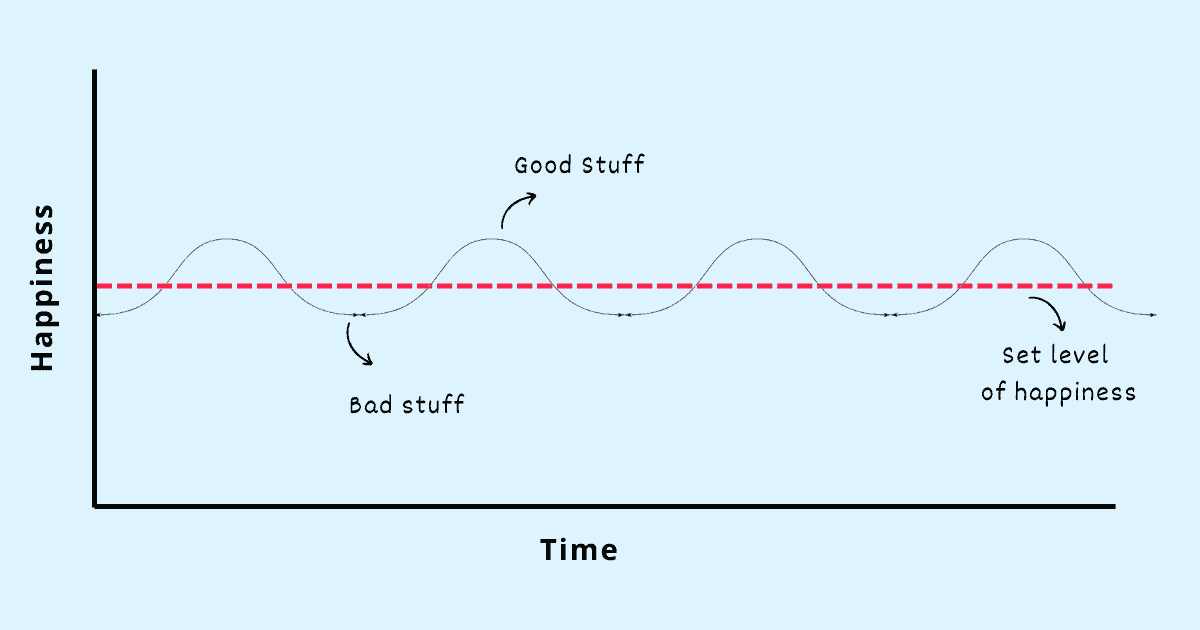On the hedonic treadmill
I’ve recently been thinking about some of the harmful scripts that we take for granted in modern society.
We tend to define success narrowly—in terms of money, fame, power, or some combination. We place a high value on material possessions, driven by a culture of consumerism and conspicuous consumption. We’re constantly being marketed and advertised the next life-changing product or service. And all of this is hyper-charged by social media, making it easy to compare our lives with everyone else’s, thus ramping up our mimetic desires.
The consequence is that we often find ourselves blindly chasing one pleasure after another in the hopes of increasing our happiness. But in reality, we’re just stuck on the hedonic treadmill.
The hedonic treadmill is a psychological theory that describes how people tend to return to a baseline level of happiness after major positive (or negative) events. The treadmill is a metaphor for someone remaining rooted in the same spot despite the illusion of forward movement.
If you’ve ever purchased something that you initially derived pleasure from but realized the feelings didn’t last very long, you know exactly what this is like.

Of course, there's nothing wrong with buying things you really want. I'm not advocating becoming a monk. I am suggesting, however, that material possessions can only take us so far.
Ironically, I live in Miami, the capital of hedonism. For me, it’s just a reminder that one can choose a different path regardless of the prevailing cultural dynamics in their environment.
To get off the hedonic treadmill and make progress on the road to genuine fulfillment, we have to look beyond social media feeds and targeted marketing campaigns. Here are a few things that I’m personally finding helpful.
- Relationships: In the past, I tried too hard to please people that I didn’t really care about just so I could fit in. Now I recognize that it’s the quality and depth of relationships that matter, not the quantity.
- Gratitude: Regularly reflecting on what I’m thankful for shifts the focus from what I don’t have to what I do. It’s always a great reminder of how lucky I am.
- Intrinsic motivations: Figuring out what I truly care about without the need for external validation has been a challenging yet clarifying experience.
- New challenges: Engaging in activities that allow me to grow and rekindling lost interests have been effective ways to keep things interesting and prevent stagnation.
- Mindfulness: Being deliberately present in the moment and acknowledging my feelings without judgment has been a great way to build self-awareness.
- Lagom: Embracing the idea of “not too much, not too little, just enough” is proving to be an unexpected stress reliever. Defining your own level of enough frees you from the shackles of always wanting more.